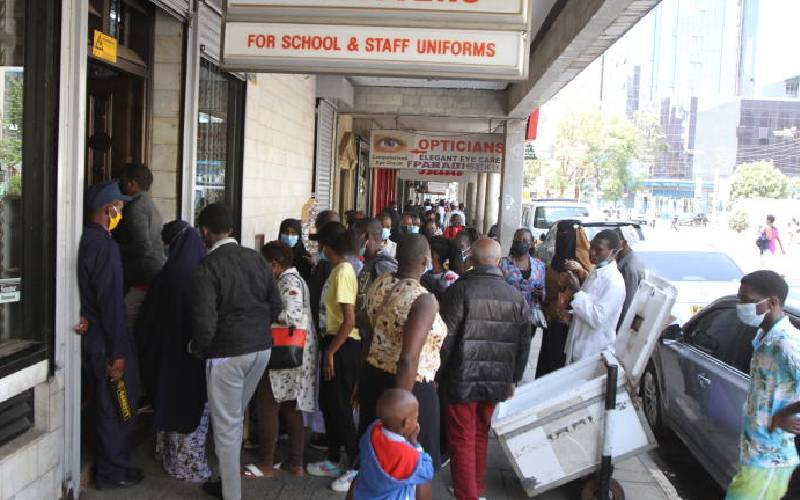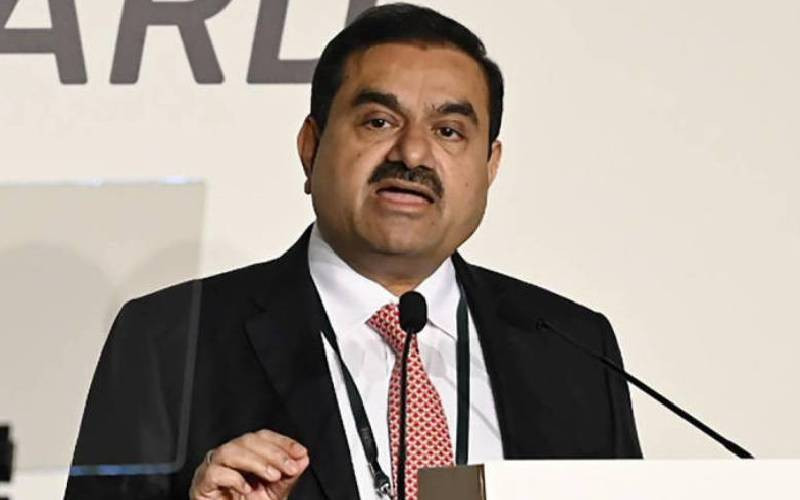×
The Standard e-Paper
Stay Informed, Even Offline

Parents queue outside Uniform Outfitters shop along Muindi Mbingu Street, Nairobi.[Elvis Ogina,Standard]
In times past, schooling was a pleasant experience. Students and parents excitedly looked forward to the day schools reopened. School fees was the least of concerns. It is hyperbole to imagine that parents and even the students feel the same today.








